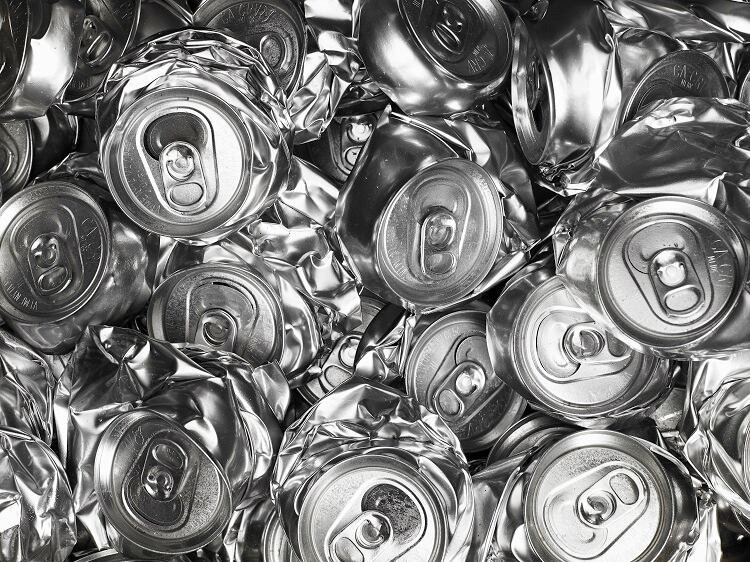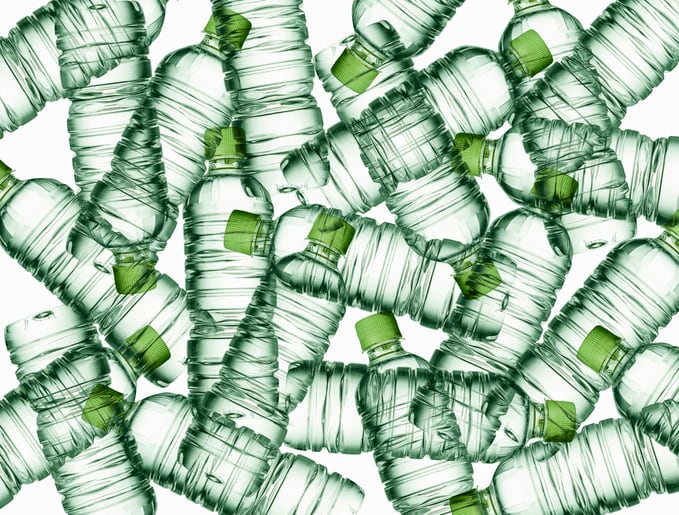Scotland’s Deposit Return Scheme (DRS) is a planned initiative that will aim to encourage recycling in Scotland.
In the scheme, 20p (€0.22) will be added to drinks containers made of metal, glass or PET plastic, which will then be given back to the consumer once they have taken it for recycling.
The non-profit organisation Circularity Scotland was set up to administer the project. Drinks producers must pay an extra 20p to put their products on the Scottish market, which then gets passed down the chain to the consumer.
The additional costs added to products clearly discriminate between products going to Scotland and products not going to Scotland. Thus, they are in breach of the Internal Market Act 2020.
For the DRS to go ahead, therefore, the UK government in Westminster will have to give it an exclusion, meaning that the rules of the act do not apply. So far, the government has not agreed to do this.
What is the Internal Market Act 2020?
The birth of the Internal Market Act 2020 came about after Brexit, to fill a vacuum left by the European Union.
“Before Brexit,” Francesca Puttock, associate at Squire Patton Boggs, told FoodNavigator, “legislative competence for areas like food, chemicals, waste and fisheries sat at EU level. Within the UK, these are devolved matters (meaning that decision-making is delegated by the Westminster Parliament to devolved institutions, such as the Scottish Parliament, the Assemblies of Wales and Northern Ireland).
“Therefore, when the Brexit transition period ended, the power to legislate in these areas moved from the EU to the UK devolved administrations rather than to the Westminster Parliament.” The four nations in the UK have ‘devolved’ governments, administering over their country whilst still taking cues from Westminster.
The act was then set up in 2020 by the UK government, to take over some of the responsibilities that the EU had previously held. According to Puttock, it continues to be controversial because of its effect on UK devolution.
“The Act introduced a principle of mutual recognition . . . i.e., the principle that any good that meets relevant requirements for sale in one nation of the UK can be sold in any other nation of the UK without having to comply with additional requirements.
“It also prohibits direct or indirect discrimination based on differential treatment of ‘local’ and incoming goods (i.e. goods produced in one nation of the UK versus goods originating in another). This is referred to as the 'Non-Discrimination Principle'. Similar principles apply on a larger scale in the ‘single market’ of the EU.”
What affect does it have on the DRS?
While England, Wales and Northern Ireland plan to release similar schemes to the DRS in 2025, they have yet to do so, and even when they do, the schemes won’t necessarily be the same as Scotland’s.
Therefore, the DRS provides a clear form of discrimination between products headed to Scotland and products headed elsewhere in the UK.
“As Scotland is looking to introduce DRS rules that will treat goods in Scotland differently to goods in the rest of the UK (imposing the deposit will make the same good more expensive to the consumer in Scotland than in other parts of the UK),” explained Puttock, “at least until an equivalent, or substantially the same, scheme is implemented in other parts of the UK, then on the face of it, under the Internal Market Act, they need an exclusion.”
Why haven’t they been granted an exclusion?
There are a number of clear situations when an exclusion from the Internal Market Act can be granted. However, it doesn’t seem that the DRS falls into any of these categories.
“There are limited exclusions to the Non-Discrimination Principle under the Internal Market Act,” Puttock told FoodNavigator. “Exclusions include threats to human, animal or plant health; chemicals; fertilisers and pesticides; tax; and the prohibition of single-use plastic items. None of the exclusions seem to apply to the Scottish DRS.”

For the scheme to work, the Internal Market Act would need an overhaul. “Any further exclusion from the Non-Discrimination Principle (i.e., an exclusion for threats or goods that are not currently included within the Act) would require the Secretary of State to amend the Act by way of Regulations.”
It is not clear that the government has actually made the decision not to grant the exclusion, however. “It was reported in the press in March this year that the Westminster government was preparing to refuse to 'grant' an exclusion for the Scottish DRS,” Nicola Smith, regulatory lawyer at Squire Patton Boggs, told FoodNavigator.
“However, ultimately, the announcement that the scheme’s start date would be delayed was made before Westminster could either publicly agree or refuse the exclusion, so it is not absolutely clear whether the scheme was blocked, or if it was delayed for other reasons, particularly given that there have been various reports suggesting that operators and bodies with responsibilities under the scheme would not be ready by August.
“Some commentary suggests the Westminster government would prefer a unified DRS for the UK to limit trade disruption within the country. However, this is unlikely to satisfy Scotland and Wales’ recycling ambitions, which are broader than England’s."
What impact could the DRS have on UK trade?
According to Puttock, the industry view of the DRS is, generally, a positive one. “The principle of a DRS is generally supported by industry and by consumers, particularly in light of growing concern around pollution and unsustainable consumption." Indeed, many large drinks companies support the scheme. Coca-Cola Europacific Partners are strong supporters of DRS's across Europe and were instrumental in setting up Circularity Scotland. Suntory, the company behind brands such as Orangina and Lucozade, was also involved in creating the non-profit.
However, Puttock continues, "there are currently different DRSs in the works for the different UK nations, and they are progressing at different paces.”
“If different schemes have different launch dates, there will inevitably be a period of non-alignment between the UK nations which will affect how the same goods are treated locally,” Smith told us.

“Also, the materials in scope across the different schemes are expected to vary, with the scheme in Scotland (and likely Wales) including glass, whereas the government has indicated that glass will likely be out of scope in England and Northern Ireland.
“Inconsistencies between the devolved nations of the UK may be confusing for consumers and may make the schemes less effective overall.”
These inconsistencies could even impact how the scheme itself works, and how efficient it is in actually leading to more people recycling. “The schemes in England, Wales and Northern Ireland are unlikely to take effect before October 2025,” Smith and Puttock added.
“Assuming the Scottish scheme comes into effect before then, there is an argument that Scottish residents close to the border may be inclined to purchase drinks in the north of England rather than at home (as they will be cheaper at point of purchase without the deposit per item), and there is the potential for fraud if there is an attempt to recycle such items through DRS in Scotland.”





